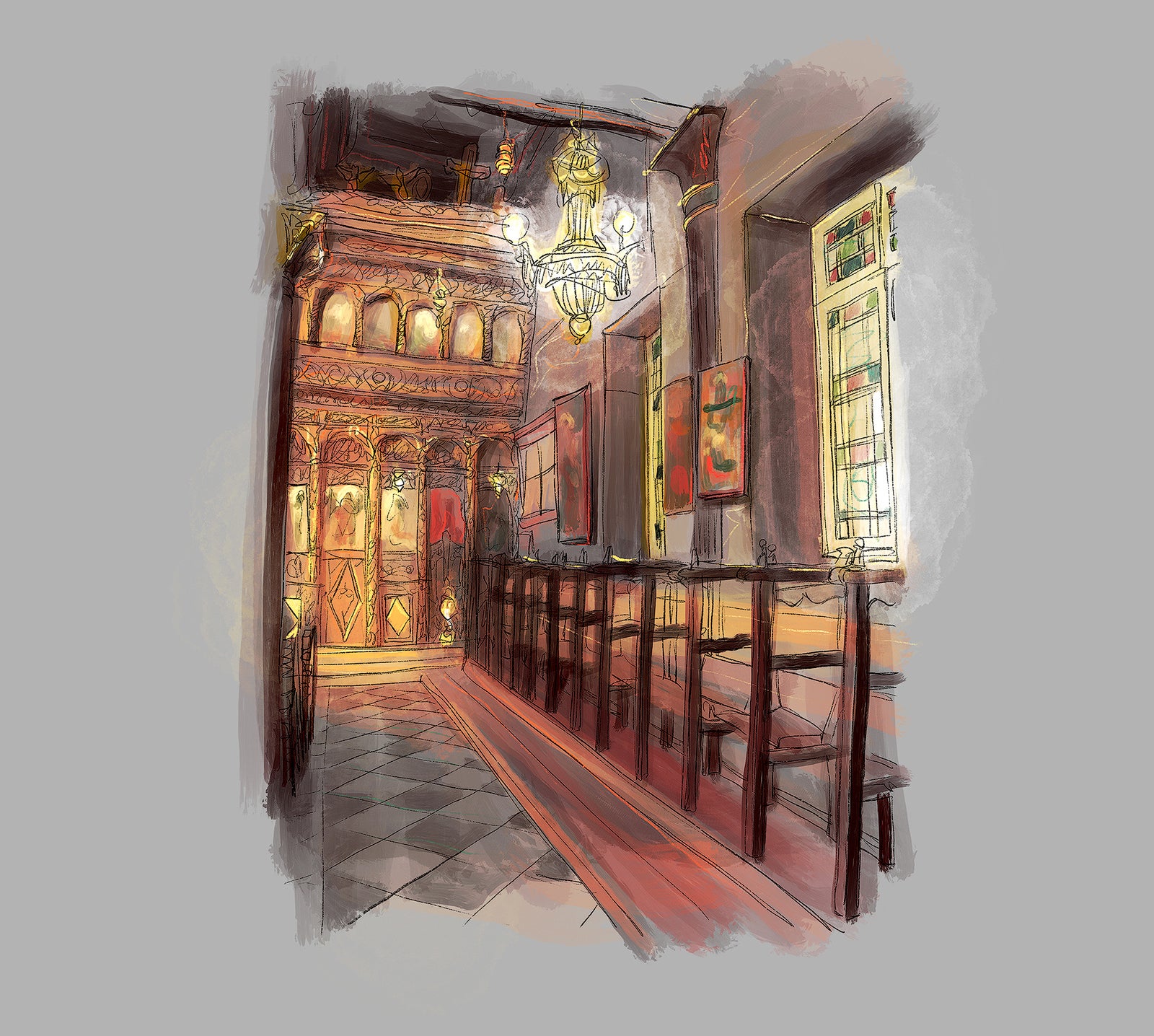The Churches of Pelion: Vessels of Faith, Tradition, & Cultural Endurance in Post-Byzantine Greece

Abstract:
The research presents a regional, historical, and architectural study of the ecclesiastic landscape of Mount Pelion – a vast, rugged mountain range in Thessaly, Greece. Specifically, it explores the physical and metaphysical hypostases of the Orthodox Church in post-Byzantine Greece, in contrast to the established rhythms of Byzantine Church Tradition.
The churches of Pelion were constructed primarily in the late eighteenth and early nineteenth centuries during the period of Ottoman rule in Greece, which commenced in Thessaly in the year 1423. During this four-century era of foreign reign, Greek Orthodox Christians were treated as second-class citizens by the Muslim hegemony, suffering widespread oppression, forbiddance of religious expression, and alienation from Western Europe. In the early years of Ottoman rule, many Greeks escaped from the coastal cities to resettle in the isolated mountains where the tyranny of the conquerors was minimized, and it was at this time that Pelion’s ample, scattered villages began to take form. Here, the tradition of Greek Orthodox church building was propagated, assuming a new architectural language of typology, construction methodology, vernacular tectonics, and interior decoration which differed from that of the grand Byzantine monuments of centuries prior. Located at the centre of every village, the churches of Pelion represent a synergy of religious and cultural zeal, preserving and strengthening the collective identity of Pelion’s Greek Orthodox villagers and fostering a powerful sense of community, faith, and refuge during a period of deep social and religious oppression.
This thesis follows a four-part investigation which begins at the scale of the Byzantine Empire, zooming in progressively from chapter to chapter towards the scale of a single church – Agios Georgios in the village of Zagora – which serves as an example through which to explore the foundation, subsistence, and religious/social/cultural dimensions of Pelion’s remote ecclesiastic edifices during the period of Ottoman rule. Through an abundance of visual artifacts including photography, sketches, drawings, maps, and diagrams, the research presented offers an unprecedented analysis and serves to address a severe knowledge lacuna in the field of Greek post-Byzantine studies of this region.
The examining committee is as follows:
Supervisor: Tracey
Eve
Winton
Committee
member:
Rick
Haldenby
Internal-external
reader:
Robert
Jan
Van
Pelt
External:
Stella
Evangelidou
The
defence
examination
will
take
place:
Wednesday,
May
18,
2022,
9:00 a.m.
The
committee
has
been
approved
as
authorized
by
the
Graduate
Studies
Committee.
A
copy
of
the
thesis
is
available
for
perusal
in
ARC
2106A.